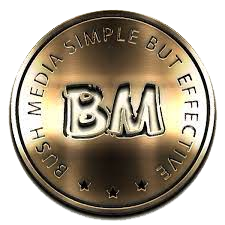
Best Practices for a High-Performing Website
Having a website that is optimized for search engines is essential for businesses looking to reach a larger audience and drive traffic to their site. To help you improve your website's search engine ranking, we've outlined some of the best practices for a high-performing website.
Content Creation and Optimization
High-quality, relevant content is the backbone of a successful website. To ensure that your content is optimized for search engines, you should:
Conduct keyword research to determine the terms that your target audience is searching for.
Write long-form, informative articles that provide value to your readers.
Use header tags (H1, H2, H3, etc.) to organize your content and make it easier for search engines to understand.
Include internal links to other pages on your website to help users navigate and search engines crawl your site.
Optimize your images with descriptive, keyword-rich file names and alt tags.
Site Structure and Navigation
Having a well-structured website with easy-to-use navigation is important for both your visitors and search engines. To ensure that your site is structured effectively, you should:
Use a clear, hierarchical site structure that organizes your content into categories and subcategories.
Include a sitemap that lists all of the pages on your site and the relationships between them.
Use descriptive, keyword-rich URLs for your pages.
Implement breadcrumb navigation to help users understand where they are on your site and how to navigate back to previous pages.
On-Page Optimization
On-page optimization refers to the process of optimizing individual web pages in order to rank higher in search engines and earn more relevant traffic. To optimize your web pages, you should:
Use meta tags, including the title tag and meta description, to provide information about your page to search engines and users.
Include header tags (H1, H2, H3, etc.) to organize your content and make it easier for search engines to understand.
Use internal links to other pages on your site to help users navigate and search engines crawl your site.
Include external links to high-quality, relevant sources to provide value to your visitors and demonstrate your expertise.
Optimize your images with descriptive, keyword-rich file names and alt tags.
Technical Optimization
Technical optimization refers to the process of optimizing the technical aspects of your website, such as site speed and mobile responsiveness, to improve your search engine ranking and user experience. To optimize your website technically, you should:
Use a fast, reliable web hosting service to ensure that your site loads quickly for all users.
Use a content delivery network (CDN) to distribute your content globally and ensure fast load times for all users.
Use a responsive web design that adjusts to the size of the user's screen, whether they are using a desktop computer, tablet, or smartphone.
Use caching and other performance optimization techniques to ensure that your site loads quickly for all users.
GET STARTED
